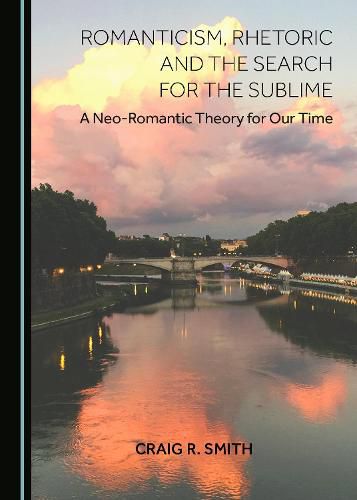Readings Newsletter
Become a Readings Member to make your shopping experience even easier.
Sign in or sign up for free!
You’re not far away from qualifying for FREE standard shipping within Australia
You’ve qualified for FREE standard shipping within Australia
The cart is loading…






Relying on the author’s established expertise in rhetorical theory and political communication, this book re-contextualizes Romantic rhetorical theory in the late 18th and early 19th centuries to provide a foundation for a Neo-Romantic rhetorical theory for our own time. In the process, it uses a unique methodology to correct misconceptions about many Romantic writers. The methodology of the early chapters uses a dialectical approach to trace Romanticism and its opposition, the Enlightenment, back through Humanism and its opposition, Scholasticism, to St. Augustine. These chapters include a revisionist analysis of the church’s treatment of Galileo in the course of showing how difficult it was for scientific study to be accepted in the academic world. The study also re-conceptualizes Jean-Jacques Rousseau, David Hume, and Edmund Burke as bridge figures to the Romantic Era instead of as Enlightenment figures. This move throws new light on the major artists of the Romantic Era, who are examined in chapters seven and eight. Chapter nine focuses on Percy Bysshe Shelley and his development of the rhetorical poem, and thereby provides a new genre in the Romantic catalogue. Chapter ten uses the foregoing to analyse and reconceptualize the rhetorical theories of Hugh Blair and Thomas De Quincey. The concluding chapter then synthesizes their theories with relevant contemporary rhetorical theories thereby constructing a Neo-Romantic theory for our own time. In the process, this book links the Romantics’ love of nature to the current environmental crisis.
$9.00 standard shipping within Australia
FREE standard shipping within Australia for orders over $100.00
Express & International shipping calculated at checkout
Relying on the author’s established expertise in rhetorical theory and political communication, this book re-contextualizes Romantic rhetorical theory in the late 18th and early 19th centuries to provide a foundation for a Neo-Romantic rhetorical theory for our own time. In the process, it uses a unique methodology to correct misconceptions about many Romantic writers. The methodology of the early chapters uses a dialectical approach to trace Romanticism and its opposition, the Enlightenment, back through Humanism and its opposition, Scholasticism, to St. Augustine. These chapters include a revisionist analysis of the church’s treatment of Galileo in the course of showing how difficult it was for scientific study to be accepted in the academic world. The study also re-conceptualizes Jean-Jacques Rousseau, David Hume, and Edmund Burke as bridge figures to the Romantic Era instead of as Enlightenment figures. This move throws new light on the major artists of the Romantic Era, who are examined in chapters seven and eight. Chapter nine focuses on Percy Bysshe Shelley and his development of the rhetorical poem, and thereby provides a new genre in the Romantic catalogue. Chapter ten uses the foregoing to analyse and reconceptualize the rhetorical theories of Hugh Blair and Thomas De Quincey. The concluding chapter then synthesizes their theories with relevant contemporary rhetorical theories thereby constructing a Neo-Romantic theory for our own time. In the process, this book links the Romantics’ love of nature to the current environmental crisis.